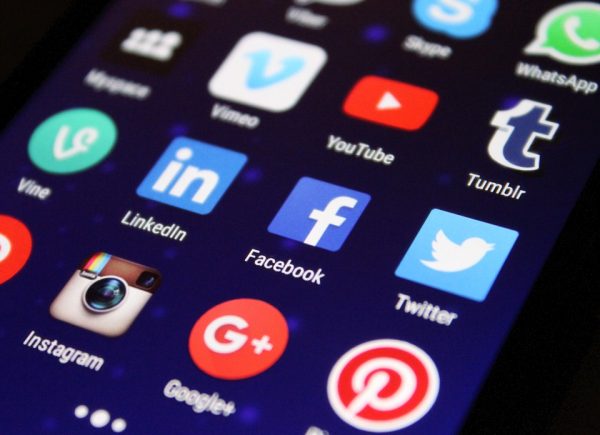Book Marketing
Self-Publishing Companies Typically Don’t Market Books, but We Do. Here’s Why:
Our goal isn’t just to make money. Our goal is to empower authors…by daring to be different. Self-publishing a book is a huge project. We pride ourselves in diving in, rolling up our sleeves and getting to work right alongside you, from the very beginning until the very end…and even after that! This is why we do book marketing.
Unlike other self-publishing companies, we have a hand-picked team of online marketing experts whose only job is to understand your goals, understand your target audience, help you reach that audience and help you sell more books. We’re not promising miracles, but we are promising marketing expertise, and a well-researched and well-planned book marketing strategy that’s ultra-customized to your needs!
Here’s What the Online Book Marketing Process Looks Like
1. Understanding Your Audience
First, we figure out who your audience is and whether you have more than one audience. Many authors do Book marketing is impossible if you don’t know your audience. We research and think about their gender, age, interests, behavior and other factors etc. This information will help us decide how and where to reach and connect with your readers online, and also the type of language we’ll use to communicate with them.
If you’re self-publishing a book on nutrition for adult amateur athletes, your book marketing strategy will look different than if you’re self-publishing a book for stay-at-home moms and dads with toddlers.
2. Researching & Understanding Your Audience’s Behavior Online
Once we you know who your audience is, we think about and research where, when and how they spend their time online and what type of devices they use.
Book marketing isn’t useful unless you’re on the right platforms. Imagine doing book marketing on SnapChat (a social network targeting teenagers) when your target audience is retirees. That wouldn’t work well, would it?
When marketing a book to an audience, we find out answers to questions like these: Do they read blogs? Do they use mobile devices? Which social networks do they use the most? When are they online? What is their attention span online? Do they use tablets? There are many more questions to ask, but this gives you an idea.
3. Deciding How to Reach Your Audience
Once we know where and how your audience(s) uses the internet, then we can decide how to reach them and choose which platforms will be the focus of our book marketing strategy.
Our strategies include all sorts of online platforms, such as websites, social media, blogs ads, search engines, to name a few.
4. Content Planning
Based on your audience, your goals and your budget, we come up with a comprehensive marketing plan to market your book. The plan not only includes information about which platform to use when, and how much to spend on each, but it also includes guidelines on how we will package the information we share to fit your audience.
The information has to be useful or entertaining to them, and it has to be presented in language that they related to, with images they find useful or attractive. The content also has to be original and has to be changed multiple times to fit the different platforms we’re using to market your book. (For example, an Instagram post, a blog post, an online ad and a website should look very different, even if they’re all sharing information about the same thing.)
5. Get to work!
After comprehensive research and planning, we’re ready to start marketing! We use the plan as a guide for all of our marketing and we tweak the plan as we go, based on the results we’re seeing and based on any changes in your goals, your audience or any other factors.
6. Editing
No matter how good of a writer you are, if you’re self-publishing a book, your book should be edited, period. It’s common knowledge in the writing world that writers miss mistakes in their own work that editors won’t miss. You’ve spent so much time writing, reading and revising that your eyes will become immune to certain errors, just like your nose can become blind to the scent of perfume or cologne that you wear…so let an editor take a crack at your masterpiece. You’ll be glad that you did!
Also, make sure your editor is a professional editor. Of course any author will want to give unfinished copies to friends and family to read and provide feedback. Their feedback is valuable, but they will miss certain things that an editor wouldn’t miss. Remember, revising and correcting can be a headache once your book has already been printed or published online. Unless you already know a professional book editor, consider self-publishing companies that offer editing services along with their publishing packages.
Website & SEO Book Marketing

If you’re self-publishing a book and you’d like more than an author webpage, we can design a whole website for you (completely separate from your webpage on our site), and we’re one of the only self-publishing companies that does this! We’ll build and maintain the website to function well and reach your target audience. We can also do search engine optimization (SEO). SEO helps your site become well-known among your target readers because it makes your site it appear high up on the first page of Google search results when they search for phrases related to your book or genre. For instance, if you wrote a crime novel set in the 1700s, you would want your website to appear high on the first page of Google search results when readers search for “crime novels,” “historical fiction crime” or “historical fiction 1700s,” and similar terms.
Social Media Book Marketing

Since most readers search for books online, having a website isn’t always enough to market a book online. You should promote your book on other online platforms and engage with your current and potential readers on Facebook, Twitter, Instagram, LinkedIn, and other social networks. This will increase their interest in you and your book and grow readers’ long-term loyalty to you. Readers’ interest and loyalty will convince them to read your book, share/discuss it on social media, praise your work publicly, it will keep them anxiously awaiting your next book. This will raise sales in the long term. If you have the ability to stay very active every day on Facebook, Twitter, Instagram, LinkedIn and other social networks, do it! If not, we have professional online marketing experts who can do this for you!
Blogs, Ads & More

Blogging and ads can be essential to book marketing too…for different reasons. If you’re self-publishing a book, blogs are a great way to connect with your audience, start discussions with them or share shorter pieces/excerpts that you’ve written. Building this kind of relationship with your readers encourages long-term loyalty and encourages them to be your advocates, praise your work publicly and refer you to friends. This helps raise sales in the long term. Ads primarily help raise awareness and sales in the short term. A reader sees an interesting ad, clicks it and buys a book. It may be tempting to just focus on short terms sales, but if you ignore the relationship-building aspect of book marketing (on blogs and social media), then this could hurt you in the long term and cost you valuable loyalty, advocacy and referrals.
Book Sales

If your book marketing has been done correctly, you’ll have enough buyers for your book that you’ll have to think about storage and shipping. We are one of the few self-publishing companies that stores books for free. We also handle fulfillment on your behalf.
You writing an E-Book and looking for publishing? Find out about ebook publishing today.
To Get Started With A 1-on-1 Consultation, Fill Out The Form Below
